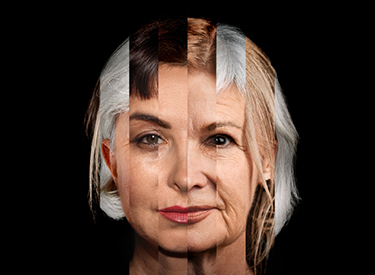
Posted 24 March 2022 in Announcement, Press Release
New election campaign calls for urgent government action to address women’s homelessness
Exclusive survey reveals that 73% of women would be influenced to vote for the party that addresses women’s homelessness
73% percent of Australian women say their vote at the upcoming Federal Election will be influenced by a political party which is committed to provide housing for women in unsafe situations, an exclusive Are Media poll has revealed.
The findings come as Are Media, along with a coalition of women’s sector groups including Homelessness Australia, Homelessness NSW, The Women’s Housing Company, The Equanimity Project, Lokahi Foundation and Full Stop Australia, today launched ‘Unhoused’, a major election campaign calling for increased funding of $7.6 billion to address the national crisis that sees 49,000* Australian women homeless each night.
Are Media’s Unhoused HERpulse poll also found that more than eight in ten (86%) believe the Federal Government is not doing enough to provide emergency and long-term community housing for homeless women. More than a third (35%) believe they could become homeless, citing domestic violence, financial hardship, divorce, loss of employment and mental illness as leading contributing factors.
In the lead up to the federal election, Are Media, home of Australia’s biggest media brands for women including The Australian Women’s Weekly, Marie Claire, Woman’s Day, New Idea, Better Homes & Garden and Australian House & Garden, will use its extensive media assets to focus the attention of its nine million audience on the very real dangers women, face when they fall into homelessness.
Are Media will also launch a pre-election advertising campaign across the Seven Network to further drive awareness around women’s homelessness and encourage voters to demand more action from political parties.
The ‘Unhoused’ campaign calls on both the coalition and the opposition to commit, within the next term of government, to invest $7.6 billion to provide 16,810 new permanent homes for women. The provision was recommended by the Equity Economics ‘Nowhere to Go’ report, commissioned in July 2021 by the ‘Everybody’s Home’ Campaign which is supported by over 300 women’s safety, homelessness and housing organisations.
It found that building 16,810 new social housing units would cost up to $7.6 billion, deliver an immediate economic benefit of $15.3 billion and avoid $122.5 million a year in costs due to women returning to violent partners.
Nicky Briger, editor of marie claire, said: “What we know is that it is very hard for any political party to ignore the voice of women when it is being backed by a strong, committed and coordinated media campaign, particularly one that can reach nine million voters.”
Jenny Smith, chair of Homelessness Australia, added: “The choice between being homeless or remaining in an unsafe home is no choice at all. We need our government to commit to the investment of $7.6 billion to see Australia’s most vulnerable women housed in permanent and safe housing.”
Australian food personality Julie Goodwin, an advocate for improved provisions for homeless women, said: “Far too many Australian women are faced with the reality of living without secure and permanent accommodation. Whether it’s due to domestic violence, divorce, mental or physical illness, job loss or other reasons, the possibility of not having a safe home is confronting, lonely and frightening. No woman should have to face the prospect of homelessness – especially in this country, with the resources that we have. I support the “Unhoused” campaign, and hope that by highlighting this issue ahead of the election we can collectively drive policy change that ensures no woman is forced into homelessness again”.
As part of the campaign, a collective of senior executives from Are Media including CEO Jane Huxley, and Group Publisher Nicole Byers, have written to Prime Minister Scott Morrison and Labor leader, Anthony Albanese, highlighting the need for urgent political action to address the homelessness crisis.
Nicole Byers, editor-in-chief of The Australian Women’s Weekly and Group Publisher Lifestyle and Food said: “Between now and the likely May Federal Election, we will tell the stories of Australian women who have been affected by homelessness and we will encourage all Australian’s to be aware of which party is making the strongest commitment to building new affordable housing for women.”
The Unhoused campaign is calling on all Australians to sign a petition to show support at www.unhousedwomen.com.au.
Source:
ABS Census data 2016
FACTS ABOUT WOMEN’S HOMELESSNESS
[1] https://issuu.com/ywcacanberra/docs/parity_vol33-09
[2] https://humanrights.gov.au/our-work/age-discrimination/projects/risk-homelessness-older-women
[3] https://humanrights.gov.au/sites/default/files/document/publication/ahrc_ow_homelessness2019.pdf
[4] https://issuu.com/ywcacanberra/docs/parity_vol33-09
For more information:
[1] https://www.aihw.gov.au/reports/homelessness-services/specialist-homelessness-services-annual-report/contents/summary
[2] https://www.aihw.gov.au/reports/homelessness-services/specialist-homelessness-services-annual-report/contents/clients-who-have-experienced-family-and-domestic-violence